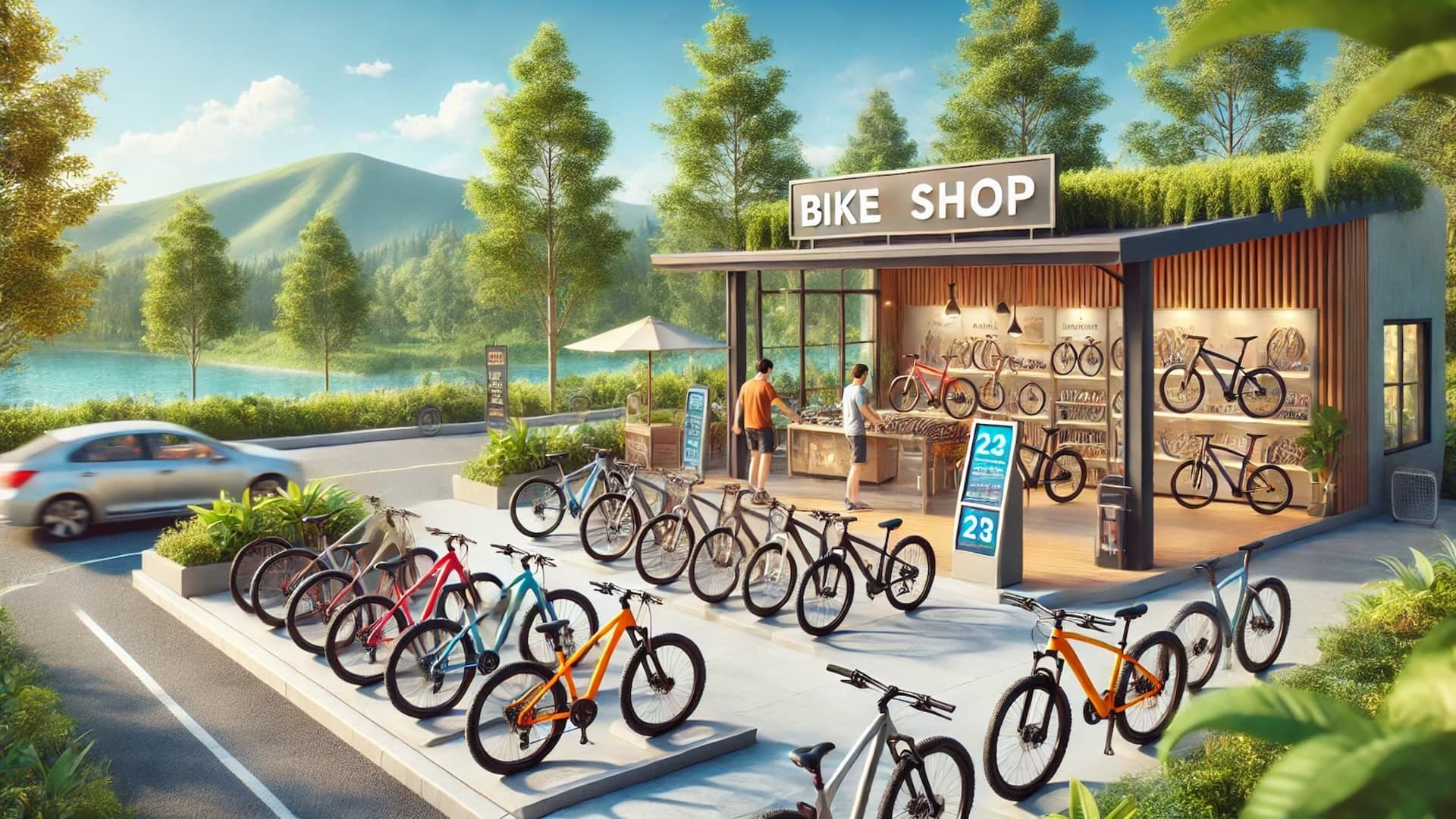You may start a bike rental business if you love riding bikes and there is a desire for more economical, fun, and eco-friendly ways to get about. The process needs careful planning and good management whether you’re going after tourists, workers, or fitness fans. Now that you have this help, you will feel confident and have a solid base for future success as you start your bike rental business.
1. Understand the Market
Before diving into operations, research the demand for bike rentals in your target area. Analyze:
- Customer Base: Are you catering to tourists, local commuters, or cycling enthusiasts?
- Competitors: Study their pricing, bike inventory, and customer service.
- Seasonality: Assess whether demand fluctuates based on seasons, holidays, or local events.
Knowing the market will help you put your business in the best place and keep you from investing too much or too little.
2. Develop a Business Plan
A comprehensive business plan serves as your roadmap. Key components include:
- Business Goals: Define short- and long-term objectives.
- Target Audience: Specify who your customers are and how you’ll attract them.
- Revenue Model: Decide whether you’ll charge by the hour, day, or offer memberships and subscriptions.
- Budget: Account for startup costs, such as purchasing bikes, renting space, and marketing.
If you are seeking investment capital or loans, this stage will be useful as well.
3. Choose the Right Location
The location of a bike rental business is very important to its growth. Ideal locations include:
- Near tourist attractions, beaches, parks, or trails.
- Urban areas with bike-friendly infrastructure and high foot traffic.
- Proximity to public transportation hubs.
Ensure your location has enough space to store bikes securely and accommodate customers.
4. Build Your Fleet
The type and number of bikes you invest in will depend on your target audience:
- Standard Bikes: Perfect for casual riders and tourists.
- Mountain Bikes: Ideal for off-road trails and adventure enthusiasts.
- Electric Bikes (E-Bikes): Popular for longer distances and urban commuters.
- Kids’ Bikes and Tandems: Cater to families and groups.
Buy high-quality bikes from well-known brands to keep up with upkeep costs and make sure customers are happy.
5. Handle Legal and Administrative Requirements
Before launching, make sure your business complies with local laws:
- Licenses and Permits: Obtain the necessary permits for operating a rental business.
- Insurance: Protect your business with liability insurance to cover damages, theft, or injuries.
- Terms of Service: Create clear rental agreements outlining rules, liability waivers, and penalties for damages or late returns.
Consult a legal professional to ensure your documents are thorough and compliant.
6. Invest in Bike Rental Management Software
Efficient management is crucial, especially as your business grows. Rental management software can simplify operations by:
- Automating Bookings: Allow customers to reserve bikes online 24/7.
- Tracking Inventory: Monitor the availability and maintenance status of each bike.
- Dynamic Pricing: Adjust rates based on demand, seasons, or promotions.
- Payment Integration: Accept cashless payments and issue invoices.
A reliable method like TopRentApp can help you get more done, make less mistakes, and make your customers happier.
7. Set Competitive Pricing
Your pricing strategy should reflect your costs and local market conditions. Common options include:
- Hourly Rates: Best for short-term rentals in high-demand areas.
- Daily Rates: Ideal for tourists or day-long rides.
- Memberships and Subscriptions: Encourage repeat business by offering discounts for frequent renters.
To get more people, you could offer package deals like family rates or discounts for bookings made by a group.
8. Promote Your Business
Effective marketing will help you reach your target audience. Strategies include:
- Website and Online Booking: Create a user-friendly website with clear pricing, bike options, and an easy-to-use booking system.
- Social Media: Showcase your bikes, highlight scenic routes, and run promotions on platforms like Instagram and Facebook.
- Partnerships: To get more customers, work with hotels, tour companies, or area events.
- Local SEO: Optimize your online presence to appear in local search results, using keywords like “bike rentals near me” or “bike rental in [City].”
Customer reviews can also boost your credibility, so encourage satisfied renters to leave feedback.
9. Maintain Your Fleet
Regular maintenance is essential to keep your bikes in good condition and ensure safety:
- Routine Inspections: Check brakes, tires, and chains after every rental.
- Cleaning: Keep bikes clean to make a positive impression.
- Replacement Schedule: Plan to replace older bikes periodically to maintain a reliable fleet.
Time can be saved and mistakes can be avoided by using management software to keep track of maintenance schedules.
10. Focus on Customer Experience
Happy customers are more likely to return and recommend your business. Prioritize:
- Friendly Service: Train staff to be knowledgeable and helpful.
- Convenience: To improve the experience, provide locks, maps, and helmets.
- Feedback: Regularly gather feedback to identify areas for improvement.
Conclusion
It’s tough to get ahead in the car rental business, but if you use the right methods, your company can make money and grow over time. Implementing these tips—supported by TopRentApp’s comprehensive rental management software—can transform your rental operations into a well-oiled machine that maximizes efficiency and customer satisfaction. Start improving right away to help your rental business make more money and keep customers coming back.
Launching a bike rental business is easier with automated workflows and smart fleet tracking.
👉 Request a free demo to learn how TopRentApp streamlines bookings, maintenance, and pricing.
A bike rental software helps you operate efficiently from the start.

